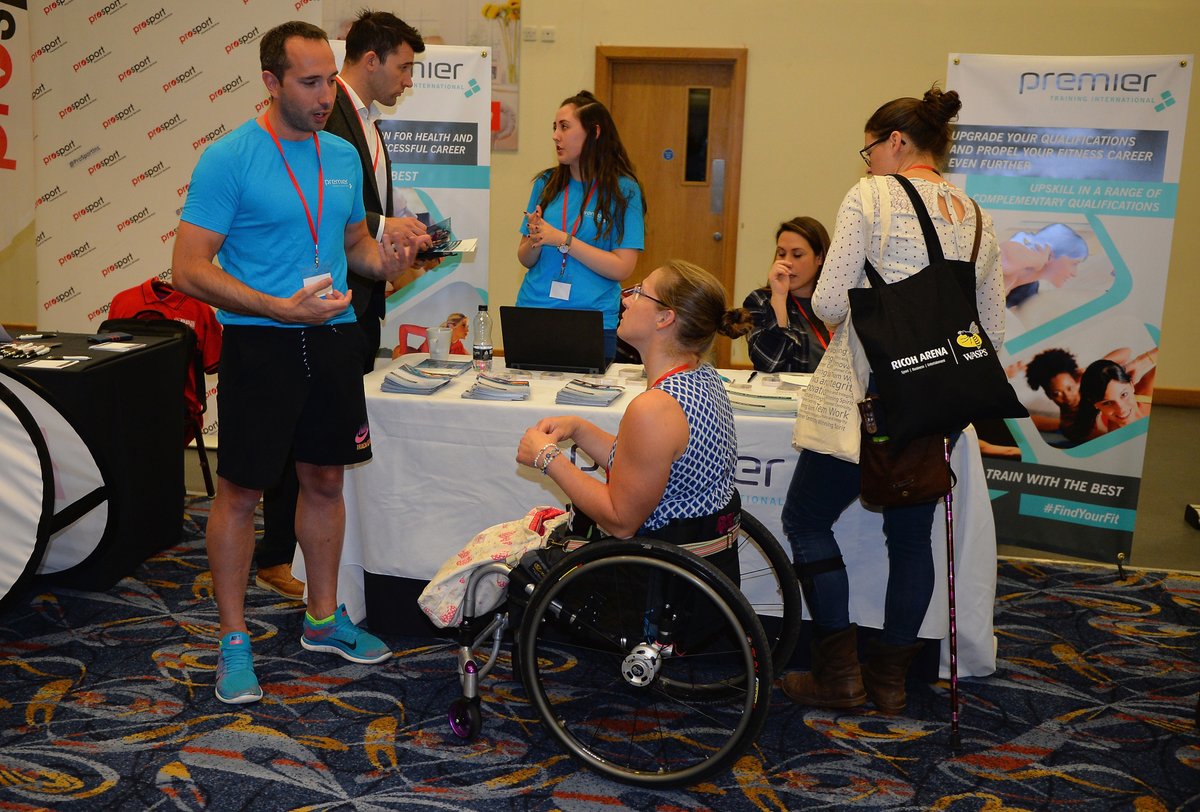Let’s cast our minds back to the women’s Olympic qualifying event in Valencia last summer.
Midway through the week, GB women had a day off and a recovery session at a local indoor pool. Buddy Holly was playing over the speakers, elderly locals were enjoying a water aerobics class and the pool attendant was castigating me for not wearing a swim cap. Yes, this correspondent happened to be doing lengths at the time.
In single file down the 50m pool deck entered the GB team. Laughter soon emanated around the venue from their cordoned off lanes as they used their floats and noodles. There was a good-time feel to the morning’s proceedings. Days later, of course, the week ended with the team doing a victory jig, Copacabana-style, on the Valencia pitch. A year on and they added even more life-changing bounty to their CVs.
These sporting endorphins can’t last forever, however. And so to a unique event – The Athlete Futures Fair – put on by UK Sport earlier this month. Attracting more than 300 attendees, with nearly 40 big businesses represented, including Aldi, Halfords and Goldman Sachs, the networking day was designed to give an insight into the next step of an athlete’s future.
There were several hockey Olympians at the Ricoh Arena in Coventry, including developmental and centralised athletes. If anything, the event marked the start of a period of change at Bisham Abbey. For over the next month or so, some Rio Olympians will announce their retirement and there will be an influx of recruits. New faces, fresh challenges.

Keeping a watchful eye over proceedings at Bisham will be Emma Mitchell, below right. Herself a former athlete as an England and Saracens rugby player, Mitchell has seen 150 athletes come and go since she first joined England Hockey a decade ago as a performance lifestyle advisor, primarily with the English Institute of Sport.
To say the set up is a far cry from British hockey’s last gold and the boys of 1988 is an understatement. Back then players had to take time off from their jobs or, in some cases, either resign with employers unwilling to give them unpaid leave.
During this past Rio cycle, there were 14 players who managed to juggle both work and hockey across the men’s and women’s squads, without the travails seen by the Seoul gold medallists.
Further, the forward-thinking process of life after hockey at Bisham starts almost as soon as the athletes sign on to the programme.
As Mitchell points out, there are several paths into potential employment. “Some work is put towards the Athletes Fairs, while another route is through the Hockey Family, with several former players well established in the outside world,” she says.
“From ‘88 players to recent retirees, there has been an invaluable network into the business sector, either through introductions or offers onto graduate schemes.”
However, for those who will either be dropped from the Tokyo four-year cycle or retire from the centralised programme, the ‘next step’ process is unlikely to be a smooth transition. Contrasting emotions and new identities, according to Mitchell.
“It’s been a huge focus of their lives for the last five, ten, 15 years,” she says. “But that again is part of the support in the challenges of losing that athletic identity.”
EIS compare it to something akin to a grief cycle, whereby the challenge is to find a new way of looking at oneself. It is no overnight cure. “They are a smart bunch and resilient, ambitious individuals,” says Mitchell. “It’s hard to replace the thrill of playing an Olympics or winning gold, that adrenalin rush won’t come again. But other things replace it.”
It remains to be seen, too, how the men’s squad deal with the heightened profile of women’s gold once they are all back training in January. Or, indeed, the squad’s mind process these past few months.
Once again, the EIS support system is pivotal. Speaking to Danny Kerry, it was clear that the psychological aspect of the sport was important to the coach. In the wider picture, he said, it is an area that just doesn’t get written about.
“Some athletes end up in a really dark place after a Games, as do staff,” he told me. “The mechanisms of support are important and we have long planning meetings.
“There are few things that reach the news in terms of mental health. This is a massive subject. If someone has put eight to 12 years into something, it doesn’t pan out the way it hoped and all of a sudden they are scratching around thinking whether they want to continue or not, the advice around them is absolutely critical.”
Come the summer, these Bisham occurrences will no doubt be forgotten as international hockey returns to the fold. Yet the different strands, both positive and negative, that come with a fresh cycle are plainly evident – and crucial to England Hockey’s success.
For the time being, though, it’s clear that the women’s squad is benefiting from the trappings of Olympic gold.
As Olympian swimmer Paul Palmer, an Athletes Futures speaker who now works as a director at City insurers RKH Speciality, says: “They were big underdogs, but the teamwork they demonstrated to win the gold was something that surely every corporation would want to tap into.
“The work ethic, never-say-die attitude and all-round team performance is something that would benefit all organisations. Who wouldn’t want to employ people like that?!”



